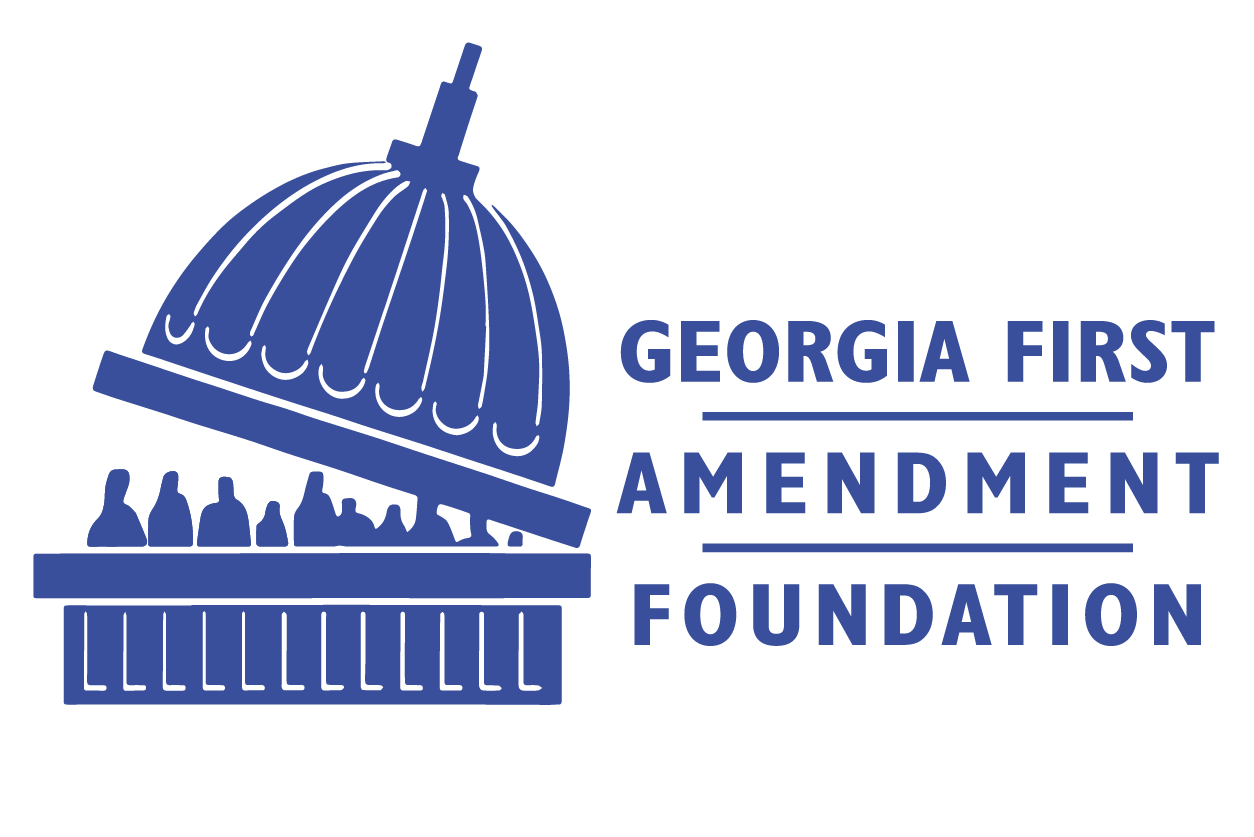The Georgia First Amendment Foundation spends 100 percent of our time advocating for and educating about access to public information, government transparency and free speech. Much of that work happens at the state General Assembly, where we fight for open government and unfettered newsgathering that benefits all Georgians.
The Georgia General Assembly convenes on Jan. 9. Here are our top priorities as the session approaches:
Advocating for transparency in policing
Police are spending tax dollars to acquire body cameras, but then refusing to provide the video to the public. Police agencies are claiming it is their right to prevent the public from seeing the video for an indefinite period of time so long as they say an investigation is “open.” GFAF is working hard to make sure laws related to body cameras bring more transparency to policing across the state.
Urging openness for the state’s judicial watchdog
A new constitutional amendment allows legislators to remake the state’s 40-year-old judicial watchdog agency. Lawmakers will appoint some Judicial Qualifications Commission members, and the state Senate will confirm all JQC appointments. In addition, the legislation behind the JQC changes states the findings and records of the commission “shall not be open to the public except as provided by the General Assembly.” We’re urging lawmakers to build openness and transparency into operations of the recreated JQC.
Exposing secret business deals
The Georgia General Assembly has repeatedly passed legislation expanding the secrecy around the state’s negotiations with companies that want to put factories in Georgia. Government officials want to decide what is best for communities without consulting citizens. We’re advocating for Georgians’ right to know.
Keeping information about public institutions open to the public
The Georgia General Assembly and the Georgia courts have repeatedly taken steps that erode transparency of public hospitals, law enforcement and other institutions. GFAF and First Amendment partners have taken action in the courts and in the Legislature to oppose this erosion of public access.
Speeding up access to public information
The Georgia General Assembly is delaying public and press access to records related to Georgia college sports. The public has a right to see for themselves what contracts are being signed, what misconduct has occurred and what actions have been taken. We’re working to prevent such long delays that the right to these records becomes meaningless.
Preventing the erasure of criminal histories
Convicted criminals are increasingly being permitted to erase past criminal records. We’re fighting to make sure these “erasure statutes” do not leave Georgia businesses and citizens at risk of hiring employees who have been found guilty of serious crimes.
Promoting effective records management and reasonable access costs
The rapid pace of digitization of public records has public agencies and institutions increasingly outsourcing their records management to commercial vendors. Without vigilance by GFAF, these vendors drive up cost of public records, thereby limiting access to private citizens who cannot pay commercial rates.
In addition, digitization has led to a change in some fees for record retrieval. Per-page fees have given way to “research” or “redaction” fees that can significantly drive up the cost of obtaining public records. GFAF is working to ensure public records are accessible to all citizens at a reasonable cost.
We’ll update our Legislative Watch as the General Assembly draws nearer and more bills are filed. Become a member and receive our e-mail newsletters with legislative updates and other First Amendment news.
